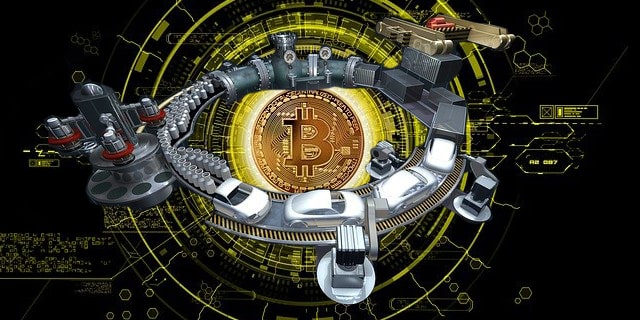Bitcoin as an Intangible Asset

Investors can use financial multiples to arrive at a stock’s intrinsic value, which includes a price-to-earnings ratio (P/E), price-to-book ratio (P/B), and/or enterprise value to EBITDA (EV/EBITDA) multiple. Because of the uniqueness of a business and/or an industry, a “one-size-fits-all” approach does not exist for valuing stocks. Moreover, as industries have evolved, so have valuation methodologies. Throughout the information age, market participants have been at odds with valuing technology businesses because of their disruption potential, massive cash burn rates, exuberant growth, unexplored/unquantifiable markets, and priceless intangible assets. Such complexities have caused even the most talented and experienced market participants to miss the boat.
“I made the wrong decisions on Google and Amazon.” – Warren Buffett
Consider that if we were to value Facebook’s stock by using a price-to-book ratio (P/B), we’d fail to account for Facebook’s most valuable intangible asset – its network of 1.8B daily active users that is available to anyone with an internet connection and an email address. Source: s21.q4cdn.com
Value in the modern age can exist in the form of bits and bytes.
With this in mind, consider bitcoin’s intangible assets when ascertaining its intrinsic value, such as the following:
- Bitcoin is secured by cryptography and an ever-increasing amount of computational power. Therefore, the reliability and robustness of the network presents itself as the most secure, decentralized, digital asset in existence. Entities, goods, and services that prove to be unreliable and insecure are widely perceived to be of lesser value. When Equifax Inc. reported a data breach in 2017 that exposed the personal information of 147 million people, the value of Equifax’s stock plunged nearly -35%, erasing more than $5B in value.
- There is no shortage of anecdotal stories of fake gold, jewels, and or collectables being passed off as authentic.
Nasdaq-listed and Wuhan-based Kingold Jewelry used gilded copper bars to pass off as real gold bars to secure $2.8B in loans from more than a dozen Chinese financial institutions. The scheme came to light in February 2020 when Dongguan Trust Co. Ltd. went to liquidate Kingold’s collateral to cover defaulted debt, only to discover gilded copper alloy. On May 22nd, one of Kingold’s largest creditors, China Minsheng Trust Co. Ltd., obtained a court order to test a sample of the collateral and discovered copper alloy. As of September 23rd, shares in Kingold have fallen -88% since the news broke in February. Source: caixinglobal.com
Bitcoin was developed with incentives in place to ensure that network validators have a vested interest in verifying past and present transactions, bitcoin’s immutability is arguably priceless. The immutability of a bitcoin and a corresponding transaction, which cannot be counterfeited or faked, makes bitcoin a highly differentiated, reliable, secure, and valuable asset.
- For many around the world, the idea of participating in a network that doesn’t discriminate and isn’t tyrannical is both appealing and foreign. The fact that the applications of bitcoin are permissionless and available to all presents the opportunity for network effects to flourish like never before. To contextualize the inherent value of network effects, a study conducted by Silicon Valley seed investment fund NFX found that network effects account for approximately 70% of the value created in technology since 1993.13
 Investors don’t base their decisions on reality, but on their perceptions of reality. It is this collective perception amongst market participants that turns perception into reality.15 For example, some believe that tech giants like Amazon, Google, and Tesla didn’t rise to prominence solely because of their services/products, but because the perception of their future attracted the necessary financial and human capital to fuel their success.
Investors don’t base their decisions on reality, but on their perceptions of reality. It is this collective perception amongst market participants that turns perception into reality.15 For example, some believe that tech giants like Amazon, Google, and Tesla didn’t rise to prominence solely because of their services/products, but because the perception of their future attracted the necessary financial and human capital to fuel their success.
The same could be said about bitcoin. The case could be made that bitcoin will “succeed” not purely because of its underlying technology and value proposition, but because people believe it will succeed. Participants believe adoption, or the purchase/use of bitcoin, will continue to accelerate and for this reason, they adopt themselves. This rationale ignites a wave of adoption that drives others to the same conclusion and the same action. As a social phenomenon that continues to attract new users despite weathering several boom and bust cycles, bitcoin possesses the potential to rise to prominence due to its reflexive nature. Sources: nfx.com investopedia.com
For more information, download a free copy of “The Great Debate: Bitcoin & Intrinsic Value”, Kraken Intelligence, September, 2020.








